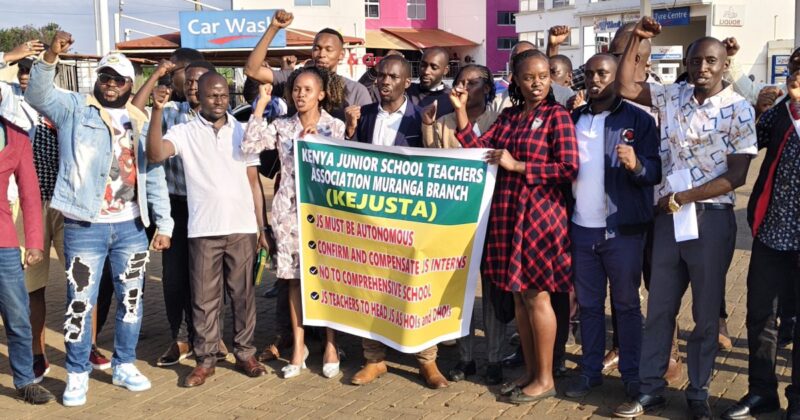The Kenya Junior School Teachers Association (KEJUSTA) is preparing for a fresh legal battle against the government over what it calls an unlawful, exploitative internship model under the Teachers Service Commission (TSC).
KEJUSTA chairperson James Odhiambo argues that the programme violates labour rights by forcing interns to perform full teaching duties while receiving low stipends and lacking job security. He cites a previous Labour Court ruling that found the structure inconsistent with labour standards.
Odhiambo says interns were repeatedly misled about the transition to permanent and pensionable (PnP) terms, with shifting timelines and contradictory government statements worsening their frustration. He insists the association will return to court to challenge what he terms “inhumane and unconstitutional” treatment of teachers.
The President’s two-year rule has given KEJUSTA new grounds to intensify its legal push. According to Odhiambo, the prolonged internship period is unnecessary and abusive, considering interns handle specialist work under CBE, including STEM subjects that require full-qualified educators.
KEJUSTA argues that teacher shortages—currently at 72,000 in Junior School—are not an excuse to exploit workers. Instead, they say the government should fund TSC adequately and fast-track absorption of qualified teachers.
The looming court battle could reshape Kenya’s teacher employment policies, potentially forcing the government to overhaul the internship structure or convert interns sooner than planned.
Labour analysts believe KEJUSTA has a strong case, especially given the previous ruling. If the court declares the programme illegal, the government may face compensation claims or be compelled to redesign its staffing model completely.
For now, the stakes are high. The legal showdown could redefine employment rights for teachers and set a new precedent for how the government manages labour under education reforms.





